History and evolution of plumbing
The history of plumbing can be traced back to ancient civilisations such as the Egyptians, Romans, and Greeks, who developed complex plumbing systems to provide clean water and remove waste. Over the centuries, plumbing has evolved from simple stone and clay pipes to modern systems made of advanced materials and utilising cutting-edge technology. The industrial revolution of the 19th century brought about significant improvements in plumbing technology, including the development of indoor toilets, running water, and sewage systems.
The 20th century saw the introduction of plastic pipes and the widespread use of hot water systems, making plumbing a crucial part of modern society. Today, plumbing continues to evolve with the use of smart technology, energy-efficient systems, and environmentally friendly materials. Despite the changes, the importance of plumbing remains the same – to ensure clean water, proper waste removal, and improve the overall quality of life.
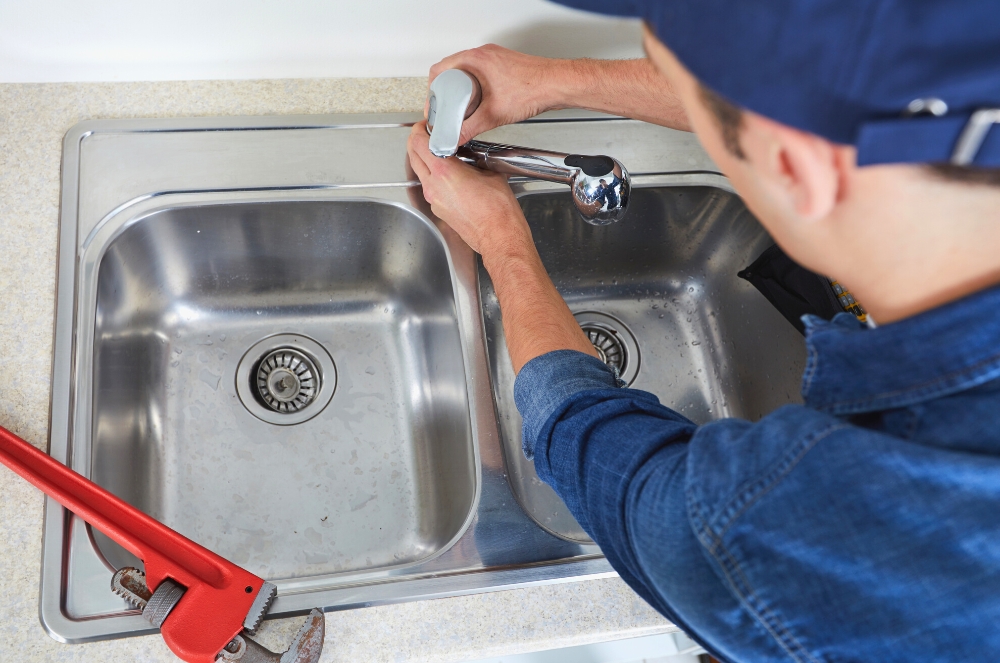
Duties and responsibilities of plumbers
Plumbers are skilled professionals who play a crucial role in maintaining the functionality of residential, commercial, and industrial buildings. The primary duty of a plumber is to install, repair, and maintain plumbing systems, including pipes, fixtures, and appliances. They also perform regular maintenance to prevent plumbing issues and ensure the systems are functioning properly.
Plumbers also diagnose and troubleshoot problems with plumbing systems, such as leaks, clogs, and broken pipes. They install and maintain heating and cooling systems and may be involved in the installation of gas and solar systems. Plumbers also work with other trades and professionals, such as architects and engineers, to ensure that plumbing systems are designed and installed correctly. In short, the duties and responsibilities of plumbers are essential for ensuring the comfort, safety, and hygiene of the communities they serve.
Training and certification process for becoming a plumber
Becoming a plumber requires comprehensive training and certification. The first step in the process is to complete an apprenticeship program, which typically lasts four to five years. During this time, plumbers-in-training work under the supervision of licensed plumbers, gaining hands-on experience and learning the trade from experienced professionals. Apprenticeships typically include a combination of on-the-job training and classroom instruction, covering subjects such as plumbing codes, safety practices, and basic mathematics.
After completing the apprenticeship program, individuals are eligible to take the certification exam, which tests their knowledge and practical skills. Upon passing the exam, individuals can apply for a licence, which is required to work as a plumber in most states. The certification and licensing process ensures that only qualified and knowledgeable individuals are working as plumbers, ensuring the safety and quality of plumbing systems.
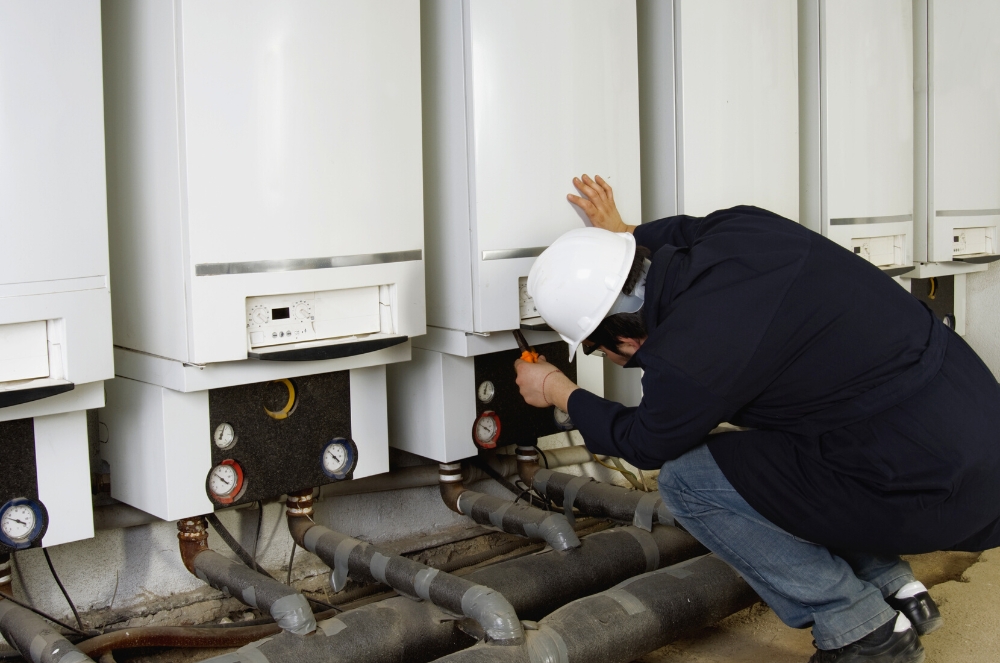
Different types of plumbing systems and their uses
There are several different types of plumbing systems, each designed for specific purposes and environments. One of the most common is the gravity-fed plumbing system, which relies on gravity to move water and waste through pipes. This type of system is typically found in older homes and buildings and is still widely used today. Another type of plumbing system is the pressure-fed system, which uses a pump to increase the pressure of the water and waste flow. This type of system is commonly found in high-rise buildings and areas with low water pressure.
Another type of plumbing system is the drain-waste-vent (DWV) system, which is responsible for the removal of waste and ventilation of the pipes. A fourth type of plumbing system is the radiant heating system, which utilises pipes to distribute hot water or steam to heat the rooms of a building. Finally, there is the greywater system, which recycles used water from sinks, showers, and other sources for non-potable uses such as irrigation. Understanding the different types of plumbing systems and their uses is essential for ensuring the proper functioning and maintenance of plumbing systems.
Common tools and equipment used by plumbers
Plumbers use a wide range of tools and equipment to perform their duties effectively. Some of the most common tools include plumbing wrenches, pipe cutters, plumbing snakes, and basin wrenches. Plumbers also use a variety of plumbing tapes, such as Teflon tape and thread sealing compounds, to ensure watertight seals. Additionally, they use various types of soldering equipment, such as soldering irons and propane torches, to connect pipes and fittings.
Plumbers also use a range of specialised equipment, such as water metres, pressure gauges, and backflow preventers, to monitor and regulate water flow and pressure. Modern plumbers also use advanced technology, such as electronic leak detection equipment, to diagnose and troubleshoot problems with plumbing systems. Whether working on simple or complex plumbing projects, plumbers rely on the right tools and equipment to get the job done efficiently and effectively.
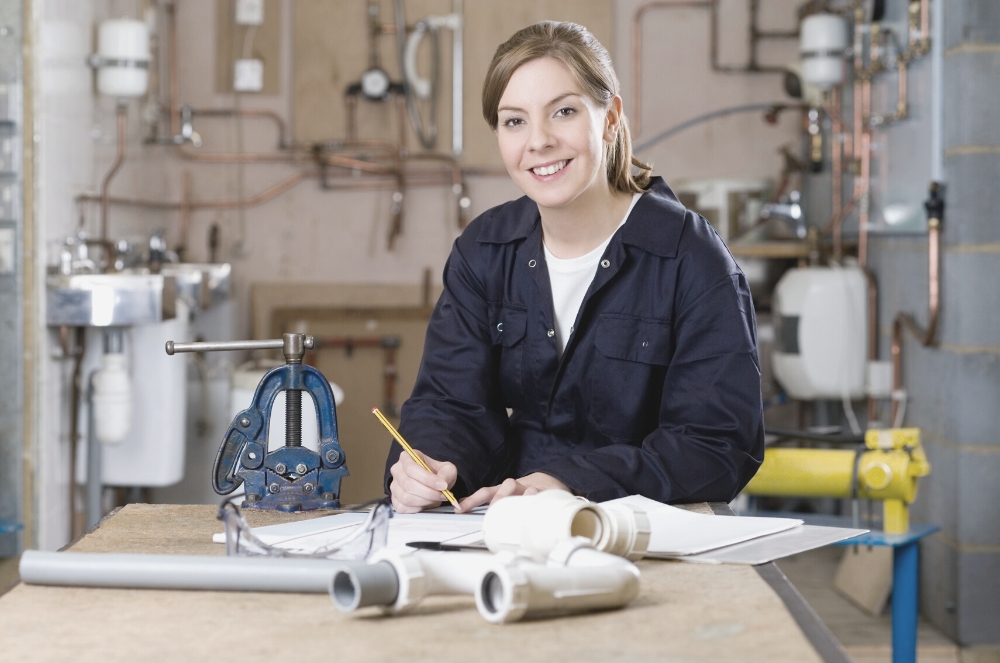
The importance of plumbing safety and best practices
Plumbing safety is of utmost importance, as plumbers work with pipes, fixtures, and appliances that can pose significant risks. Plumbers must be knowledgeable about and follow local, state, and federal safety regulations and best practices to ensure their own safety and the safety of others. This includes wearing protective gear such as gloves, goggles, and masks when handling hazardous materials, and following safe practices when working with electricity and natural gas. Plumbers must also be trained in emergency procedures and first aid, in case of accidents or injuries on the job. To prevent leaks and other plumbing issues, plumbers should use high-quality materials and equipment, and follow established standards for installation and maintenance.
Regular inspections and maintenance can also help to prevent plumbing problems and ensure that systems are functioning properly. By following safety practices and best practices, plumbers can reduce the risk of accidents, protect their health and well-being, and ensure the safety of the communities they serve.
The role of plumbers in emergencies
Plumbers play a critical role in emergencies, as they are responsible for repairing and maintaining plumbing systems and ensuring the safety of buildings and communities. In the event of a plumbing emergency, such as a broken pipe or major leak, plumbers are often called upon to quickly assess the situation, diagnose the problem, and make repairs. They must work efficiently and effectively to prevent further damage and minimise disruption to residents or businesses.
Plumbers must also be prepared to respond to emergency calls at any time of day or night, as plumbing emergencies can occur at any time. In addition to making repairs, plumbers may also be called upon to assess and advise on disaster recovery efforts, such as helping to restore water and gas services after a major storm or earthquake. Whether working in emergencies or performing routine maintenance, plumbers are an essential part of the communities they serve, and their role is critical to ensuring the safety, comfort, and well-being of residents and businesses.
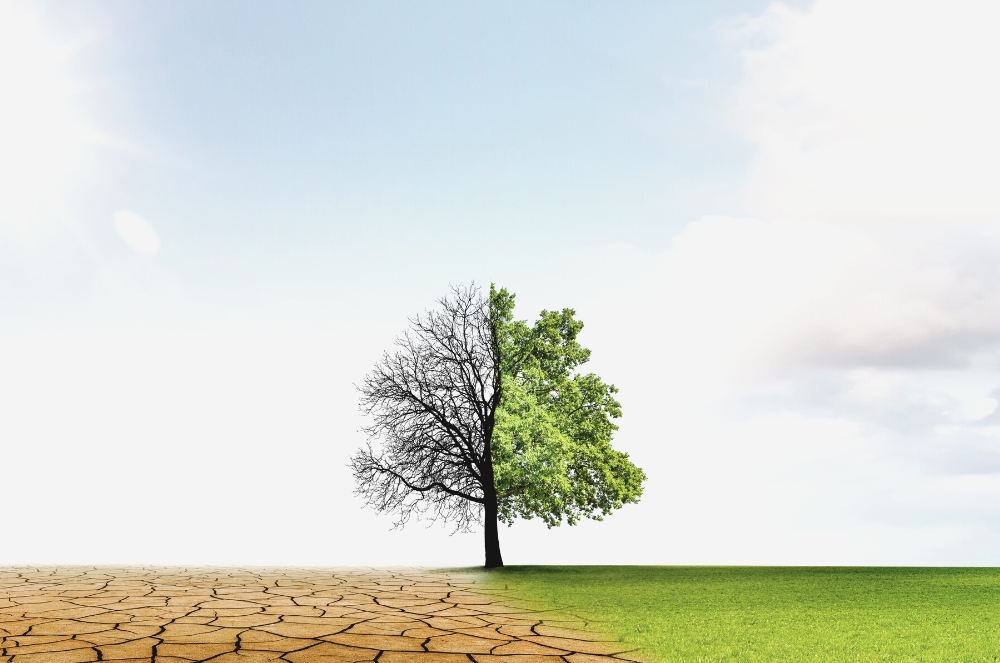
Effects of climate change on plumbing systems
Climate change has a significant impact on plumbing systems, as extreme weather conditions and temperature changes and precipitation can cause problems with pipes, fixtures, and appliances. For example, during periods of drought, water shortages can cause low water pressure and supply problems. On the other hand, heavy rainfall can result in increased water demand and lead to overflowing sewage systems and flooding. Climate change also contributes to soil instability and erosion, which can affect the stability of pipes and cause damage to underground plumbing systems. In addition, temperature changes can cause pipes to expand and contract, leading to leaks and other problems.
To mitigate the effects of climate change on plumbing systems, plumbers must be knowledgeable about current trends and best practices for designing, installing, and maintaining plumbing systems that are resilient and adaptable to changing conditions. By taking proactive measures and staying ahead of the curve, plumbers can help to protect communities and ensure that plumbing systems continue to function effectively and efficiently, despite the challenges posed by climate change.
The latest technologies and innovations in plumbing
The plumbing industry has seen numerous technological advances and innovations in recent years, with new technologies aimed at improving the efficiency, safety, and sustainability of plumbing systems. For example, smart home technology has revolutionised the way that plumbing systems are controlled and monitored, allowing for real-time monitoring and control of water usage, leaks, and other issues. Another major innovation is the use of renewable energy sources, such as solar power, to heat water and reduce energy consumption. In addition, advanced materials and techniques are being developed to reduce the risk of leaks and improve the durability and longevity of pipes, fixtures, and appliances.
New water-saving technologies, such as low-flow toilets, showerheads, and faucets, have been developed to conserve water and reduce waste. The plumbing industry is always striving to keep pace with the latest technologies and innovations, and plumbers must be knowledgeable about these developments to stay ahead of the curve and provide the best possible service to their customers.
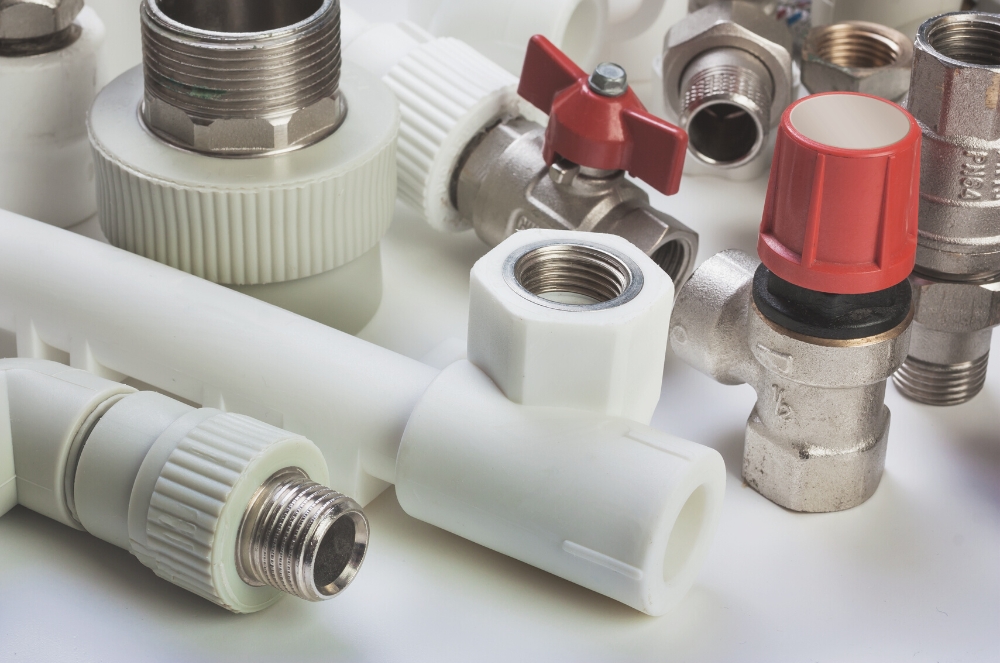
Different types of plumbing fixtures and their functions
Plumbing fixtures play a crucial role in the functioning of plumbing systems, as they are the points of interaction between the system and the user. There are many different types of plumbing fixtures, each designed for specific purposes and functions. Some of the most common types of fixtures include toilets, sinks, showerheads, and faucets. Toilets are designed to flush waste and discharge it to the sewer system, while sinks are used for washing hands, dishes, and other items. Shower Heads are used to provide a flow of water for bathing, while faucets are used to control the flow of water from pipes into sinks, bathtubs, and other fixtures.
Other types of plumbing fixtures include bidets, urinals, and bathtubs, each designed for specific uses and functions. Plumbers must be familiar with the different types of fixtures and their functions, to install, repair, and maintain these components effectively. Whether working on new installations or fixing existing systems, plumbers play a critical role in ensuring that plumbing fixtures are working properly and providing essential services to communities.
The importance of regular plumbing maintenance and inspections
Regular plumbing maintenance and inspections are crucial to ensure the longevity and effectiveness of plumbing systems. Plumbing systems are complex and must function properly to provide essential services, such as clean water and safe disposal of waste. Regular maintenance and inspections help to identify and resolve small problems before they become bigger, more costly issues. This can also prevent emergencies and minimise the risk of damage to properties and the environment. Additionally, regular maintenance can also help to improve the efficiency of plumbing systems, reducing water waste and energy consumption.
Plumbers are responsible for performing routine inspections and maintenance, as well as addressing any issues that may arise. By keeping plumbing systems in good working order, plumbers ensure that communities have access to clean water and safe, effective waste disposal, which is essential for health and well-being. Therefore, regular plumbing maintenance and inspections are a critical part of the plumbing industry and should be performed by skilled and experienced professionals.
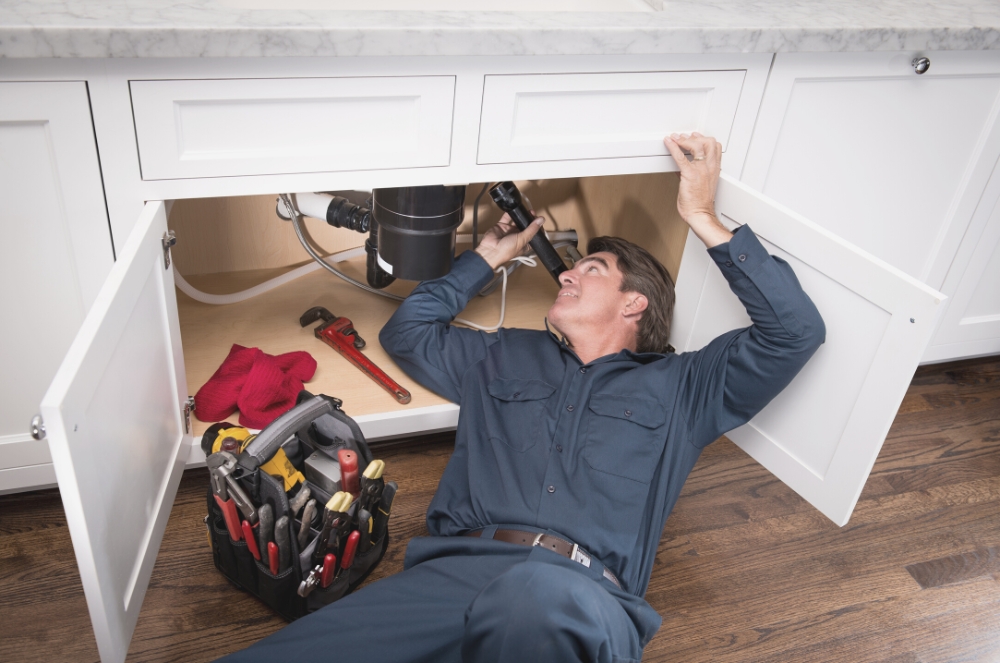
The challenges faced by plumbers in their work
Plumbers face numerous challenges in their work, including the physical demands of the job, the need for technical expertise, and the importance of safety and accuracy. Plumbers must be able to work in confined spaces, lift heavy equipment, and perform complex installations and repairs. They must also have a thorough understanding of plumbing systems, codes, and regulations, as well as the ability to diagnose and resolve problems quickly and efficiently.
Another major challenge faced by plumbers is the need to work with hazardous materials, such as toxic chemicals, gas, and wastewater. To ensure safety, plumbers must follow strict protocols and use protective gear, such as gloves and masks, to minimise the risk of injury. Additionally, plumbers must also keep up to date with changing technologies and best practices, to provide the highest quality of service to their customers. Despite these challenges, plumbers are essential to the functioning of communities and play a critical role in ensuring the health and well-being of people and the environment.
Cost of plumbing services and how to save money
The cost of plumbing services can vary greatly, depending on the complexity of the job and the hourly rate of the plumber. However, there are several ways to save money on plumbing services, such as performing routine maintenance, fixing minor problems before they become major issues, and shopping around for competitive rates. It is also important to hire licensed and insured plumbers, as this can ensure quality work and reduce the risk of costly mistakes or damages.
Using energy-efficient fixtures, such as low-flow toilets, showerheads, and faucets, can help to reduce water and energy bills over time. Another way to save money on plumbing services is to take advantage of promotions and discounts offered by plumbers and retailers or to purchase plumbing supplies and materials in bulk. By taking these steps, homeowners and businesses can reduce the cost of plumbing services and ensure that their plumbing systems are functioning properly and efficiently.
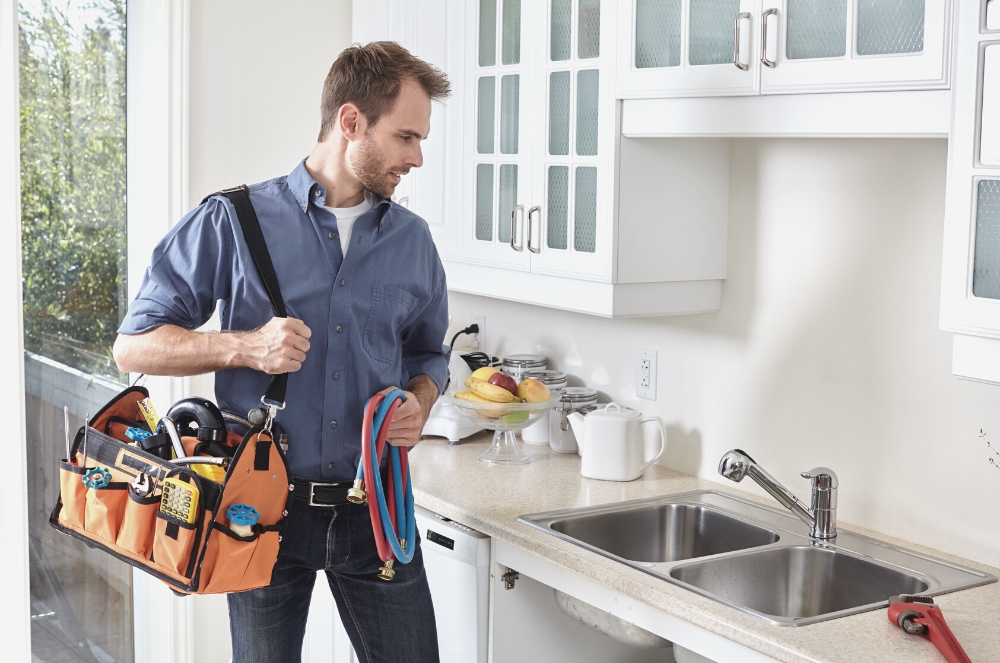
Benefits of using licensed and certified plumbers
Using licensed and certified plumbers offers several important benefits, including quality workmanship, safety, and peace of mind. Licensing and certification demonstrate that a plumber has completed the necessary training, passed the necessary exams, and met the standards of the plumbing industry. This means that licensed and certified plumbers have the knowledge, skills, and expertise to perform plumbing services effectively and efficiently.
Licensed and certified plumbers are required to carry insurance, which protects homeowners and businesses from damages and liability in the event of an accident. Hiring a licensed and certified plumber also provides peace of mind, knowing that the plumbing system is in good hands and that any issues will be resolved promptly and efficiently. In conclusion, using licensed and certified plumbers is an investment in the longevity, safety, and effectiveness of plumbing systems, and is a critical step in ensuring the health and well-being of communities.
Dangers of DIY plumbing projects
DIY plumbing projects may seem like a cost-effective solution, but they can also present several dangers, including property damage, injury, and even death. Plumbing systems are complex and require technical expertise to install, repair, and maintain. Without proper training, knowledge, and tools, DIY plumbing projects can result in mistakes, such as leaks, clogs, and broken pipes. These mistakes can cause significant damage to properties, as well as result in increased water and energy bills.
DIY plumbing projects can also involve the use of hazardous materials, such as toxic chemicals and gas, which can pose serious risks to health and safety. Even seemingly simple plumbing tasks, such as unclogging drains or replacing faucets, can become complex and dangerous when done without proper training and equipment. Therefore, it is recommended to hire licensed and certified plumbers for plumbing projects, to ensure quality workmanship and avoid potential dangers.
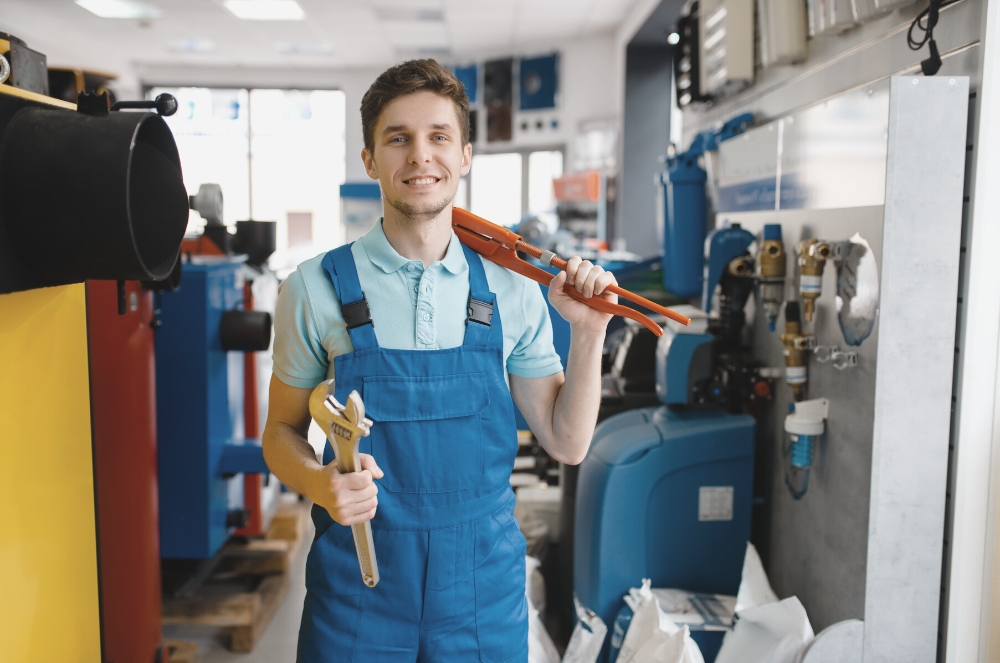
Role of plumbers in the construction industry
Plumbers play a crucial role in the construction industry, as they are responsible for installing, repairing, and maintaining plumbing systems in new and existing buildings. Plumbers work closely with architects, engineers, and builders to design and install plumbing systems that meet the needs and requirements of the building and its occupants. Plumbers also ensure that plumbing systems are installed in compliance with local codes, regulations, and standards. During the construction process, plumbers also perform regular inspections to ensure that the plumbing systems are functioning properly and efficiently.
After construction is completed, plumbers continue to provide maintenance and repair services to keep the plumbing systems in good working order. In addition to these services, plumbers also provide advice and recommendations to builders and property owners on energy-efficient plumbing solutions and water conservation strategies. The role of plumbers in the construction industry is essential to ensuring that buildings have safe, reliable, and effective plumbing systems, and is critical to the health and well-being of the people and communities who use these buildings.
Role of plumbers in environmental conservation and sustainability
Plumbers play a significant role in environmental conservation and sustainability, as they are responsible for installing and maintaining plumbing systems that promote water conservation, energy efficiency, and environmental sustainability. Plumbers work with property owners, builders, and engineers to design and install plumbing systems that use water efficiently and reduce water waste. This includes using low-flow toilets, showerheads, and faucets, as well as rainwater harvesting and greywater systems. Plumbers also help to reduce energy consumption by installing and maintaining energy-efficient heating and hot water systems, such as solar hot water systems, heat pumps, and tankless water heaters.
In addition to these services, plumbers also provide education and advice on sustainable plumbing practices, such as reducing water and energy consumption and promoting environmentally responsible waste disposal. The role of plumbers in environmental conservation and sustainability is critical to ensuring that communities have access to clean, safe, and sustainable water and energy sources, and is essential to protecting the health and well-being of the environment and future generations.
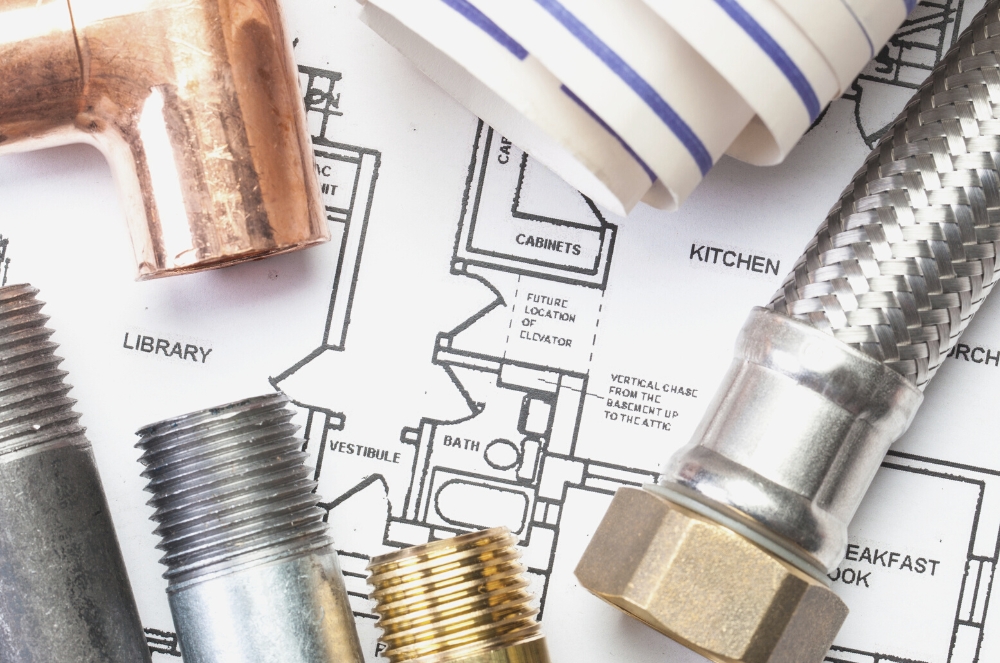
Impact of plumbing on public health
Plumbing has a significant impact on public health, as it ensures that communities have access to clean, safe, and reliable water and sanitation systems. Proper plumbing systems help to prevent the spread of waterborne diseases and illnesses, such as cholera, typhoid, and dysentery, by ensuring that water is free of contaminants and pollutants. Plumbing systems also play a critical role in waste management, as they ensure that wastewater and sewage are disposed of safely and effectively, reducing the risk of public health hazards and environmental pollution.
Plumbing systems are essential for providing safe and clean indoor environments, as they regulate the flow of water, gas, and heat in buildings. This helps to reduce the risk of fires, explosions, and carbon monoxide poisoning, as well as provide safe and comfortable living and working conditions. The impact of plumbing on public health is significant and far-reaching, as it ensures that communities have access to safe, clean, and healthy living and working environments, and is critical to protecting the health and well-being of individuals and communities.
Different types of plumbing materials and their pros and cons
There are many different types of plumbing materials used in the installation and maintenance of plumbing systems, each with its pros and cons. Common plumbing materials include copper, PVC, galvanised steel, and PEX. Copper is a durable and long-lasting material that is resistant to corrosion and easy to work with, but it is also expensive. PVC is a lightweight and affordable material that is easy to install, but it is not as durable as copper and can be prone to cracking over time. Galvanised steel is strong and durable, but it can corrode over time and is more difficult to work with than other materials. PEX is a flexible and cost-effective material that is easy to install and resistant to corrosion, but it is not as durable as copper or galvanised steel.
When choosing plumbing materials, it is important to consider the specific needs and requirements of the plumbing system, as well as the costs, durability, and ease of installation of each material. By carefully considering these factors, plumbers and property owners can choose the best plumbing materials for their needs, ensuring that plumbing systems are installed and maintained effectively and efficiently.
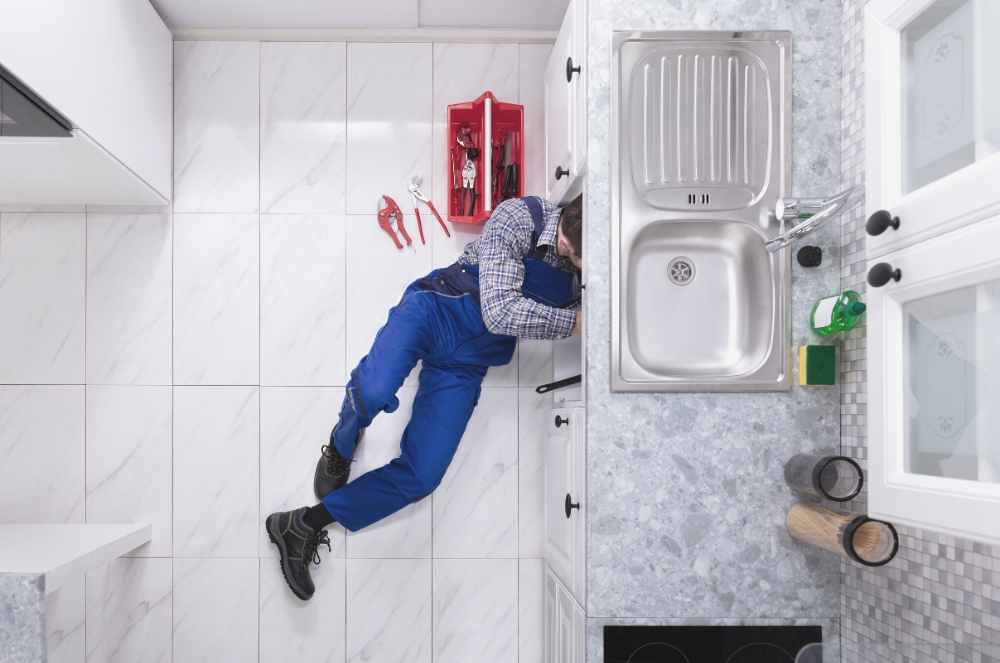
Impact of plumbing on indoor air quality
Plumbing can have a significant impact on indoor air quality, as it affects the flow of water, gas, and heat in buildings. Poorly maintained or improperly installed plumbing systems can lead to leaks, clogs, and other issues that can impact indoor air quality. For example, leaks in pipes or fixtures can lead to mould growth, which can release harmful mould spores into the air and cause health problems for building occupants. In addition, plumbing systems that are not properly ventilated can lead to the build-up of harmful gases, such as carbon monoxide and radon, which can pose serious health risks.
On the other hand, properly installed and maintained plumbing systems can improve indoor air quality by reducing the risk of leaks, clogs, and other issues that can impact air quality. By working with licensed and certified plumbers, property owners and building managers can ensure that plumbing systems are installed and maintained effectively and efficiently, helping to protect indoor air quality and promote healthy, safe, and comfortable indoor environments.
Benefits of choosing a green plumbing system
Choosing a green plumbing system can bring a variety of benefits, both for building occupants and the environment. Green plumbing systems are designed to be energy-efficient, using less water and reducing energy consumption, which can help to lower energy costs and reduce the carbon footprint of buildings. In addition, green plumbing systems often incorporate environmentally friendly materials and technologies, such as low-flow toilets and showerheads, which can help to conserve water and reduce water usage.
Green plumbing systems are often designed to be low-maintenance and durable, reducing the need for frequent repairs and replacements and helping to reduce waste. By choosing a green plumbing system, property owners and building managers can not only save money on energy and water costs but also contribute to a more sustainable future and protect the environment. Green plumbing systems are a wise investment for the future, as they offer both economic and environmental benefits, and are an important part of promoting sustainability and reducing the impact of buildings on the environment.
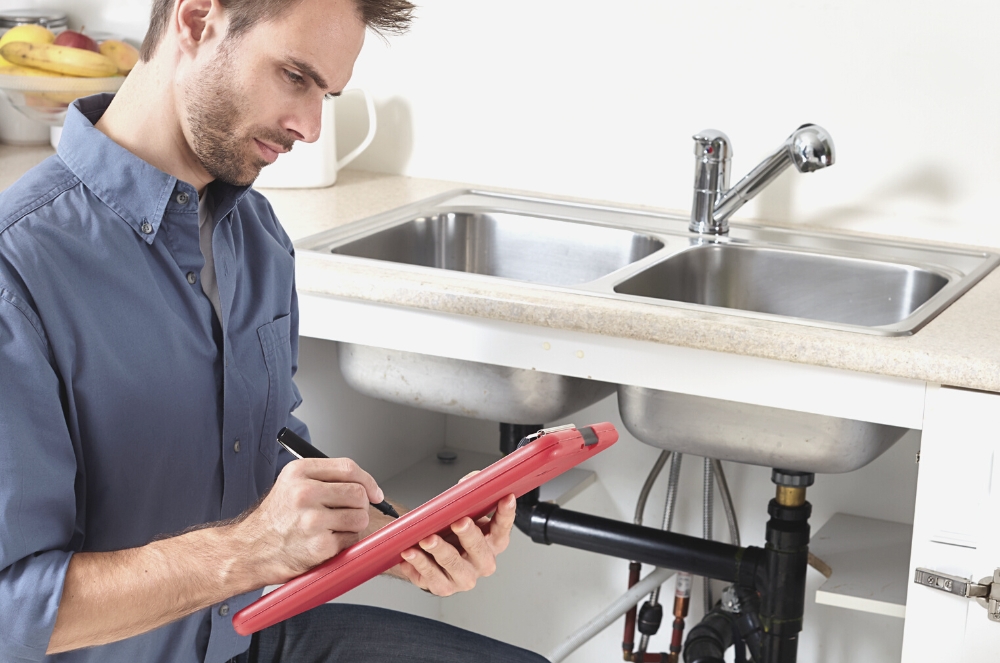
Importance of properly disposing of plumbing waste
Properly disposing of plumbing waste is essential for maintaining a healthy and safe environment. Plumbing waste can contain harmful chemicals, such as lead and mercury, which can be dangerous if not disposed of properly. Improper disposal of plumbing waste can lead to contamination of water supplies and soil, which can pose serious health risks for humans and wildlife. In addition, many plumbing materials, such as pipes and fixtures, can take a long time to break down in landfills, contributing to waste and pollution.
To minimise the impact of plumbing waste on the environment, it is important to properly dispose of plumbing materials and waste using local recycling programs, waste-to-energy facilities, or hazardous waste facilities. By working with licensed and certified plumbers, property owners and building managers can ensure that plumbing waste is disposed of properly, helping to promote a healthy and sustainable environment. Proper disposal of plumbing waste is an important step towards protecting the environment and promoting sustainability and should be a top priority for anyone concerned about the impact of their actions on the environment.
Different types of plumbing licences and certifications
There are various types of plumbing licences and certifications that plumbers can obtain to demonstrate their knowledge, skills, and expertise in the field. For example, a Journeyman Plumber licence is a basic level licence that allows plumbers to perform plumbing work on a wide range of projects. A Master Plumber licence is a more advanced level licence that demonstrates a plumber’s expertise in designing and installing complex plumbing systems. In addition, there are certifications available for specialised areas of plumbing, such as medical gas piping, cross-connection control, and backflow prevention.
Some certifications demonstrate a plumber’s commitment to the environment and sustainability, such as the WaterSense label, which recognises water-efficient plumbing products. By obtaining plumbing licences and certifications, plumbers can demonstrate their commitment to the industry and their knowledge and expertise in their field, which can help them to stand out in the marketplace and provide a higher level of service to their clients. Obtaining plumbing licences and certifications is an important step in advancing one’s career in plumbing and helps to promote professionalism, competence, and expertise in the industry.

The ethical and legal aspects of plumbing work
The ethical and legal aspects of plumbing work are an important part of the plumbing industry. Plumbers must follow a strict code of ethics when performing their work, which includes treating clients fairly, accurately estimating costs, providing high-quality workmanship, and maintaining the confidentiality of client information. In addition, plumbers must adhere to state and local plumbing codes and regulations, which outline the minimum standards for plumbing work.
These codes and regulations help to ensure that plumbing work is performed safely and effectively and protect the health and safety of the public. Plumbers who fail to follow ethical and legal standards may face disciplinary action, fines, or even legal penalties. To maintain the highest level of professionalism and integrity, plumbers must take the time to stay informed about changes to plumbing codes and regulations and must always strive to follow the highest ethical and legal standards in their work. By doing so, plumbers can help to promote the integrity of the plumbing industry and protect the health and safety of the public.
Different types of plumbing specialties, such as gas and solar plumbing
There are various types of plumbing specialties that plumbers can choose to focus on, each with its own unique set of skills and knowledge. For example, gas plumbing involves installing, repairing, and maintaining natural gas systems, including pipelines, metres, and appliances. Gas plumbers must be knowledgeable about the safe handling and installation of natural gas and must be familiar with the codes and regulations that govern gas plumbing. Solar plumbing involves the installation and maintenance of solar water heating systems, which use energy from the sun to heat water for homes and businesses. Solar plumbers must have a good understanding of solar energy systems, as well as plumbing and electrical systems.
Another specialty is hydronic heating, which involves the installation and maintenance of hot water heating systems, such as boilers and radiators. Hydronic heating plumbers must be familiar with the principles of hydroponics and must have a good understanding of heating and cooling systems. By specialising in one or more of these areas, plumbers can increase their expertise and knowledge in their field, and provide a higher level of service to their clients.
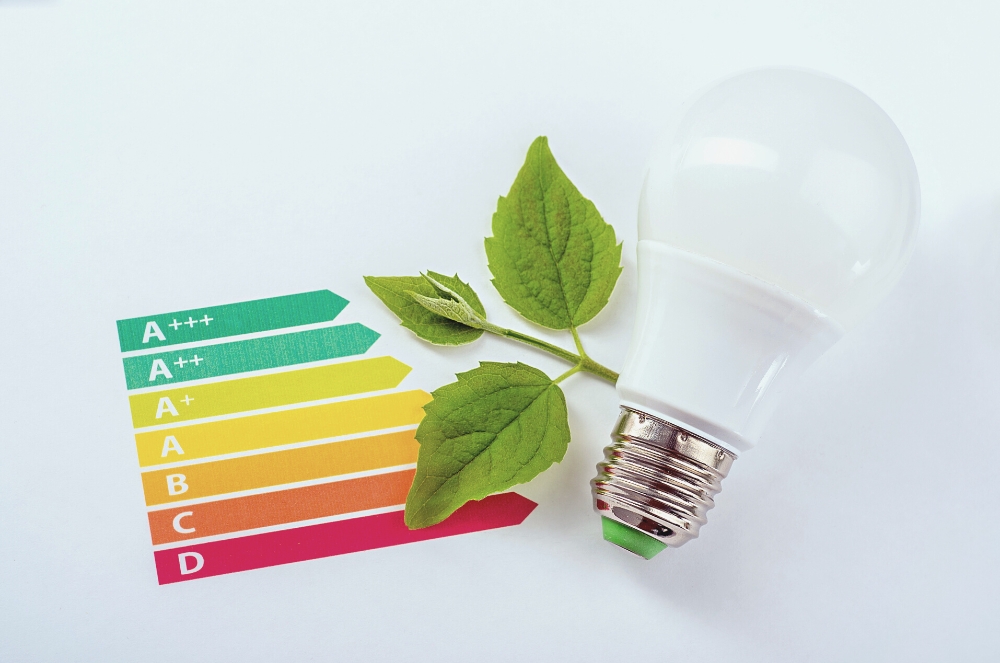
Role of plumbers in the energy efficiency of homes and buildings
Plumbers play a crucial role in the energy efficiency of homes and buildings. By installing energy-efficient plumbing systems and appliances, plumbers can help to reduce energy consumption and lower energy costs for their clients. For example, plumbers can install low-flow showerheads and toilets, which use less water and reduce water heating costs. They can also install tankless water heaters, which provide hot water on demand and are more energy efficient than traditional storage tank water heaters
In addition, plumbers can help to reduce energy costs by sealing pipes and fixtures, and by insulating hot water pipes. Plumbers can also advise clients on the most energy-efficient plumbing systems and appliances available and can help to make recommendations that are tailored to their specific needs and budget. By working to improve the energy efficiency of homes and buildings, plumbers can help to conserve energy, reduce greenhouse gas emissions, and make homes and buildings more comfortable, healthy, and sustainable.
Impact of plumbing on the real estate market
Plumbing has a significant impact on the real estate market, both in terms of property value and marketability. A well-maintained and efficient plumbing system is an important factor in determining the value of a property. Homes with modern, energy-efficient plumbing systems and appliances are more attractive to buyers and typically command a higher price. On the other hand, homes with outdated or poorly maintained plumbing systems can be difficult to sell and may require significant investments to bring them up to standard.
Plumbing issues can also be a major factor in the desirability of rental properties, as tenants expect a safe, reliable, and well-functioning plumbing system. Therefore, regular plumbing maintenance and inspections can help to ensure that properties remain marketable and attractive to buyers and tenants and can help to maximise the value of real estate investments.
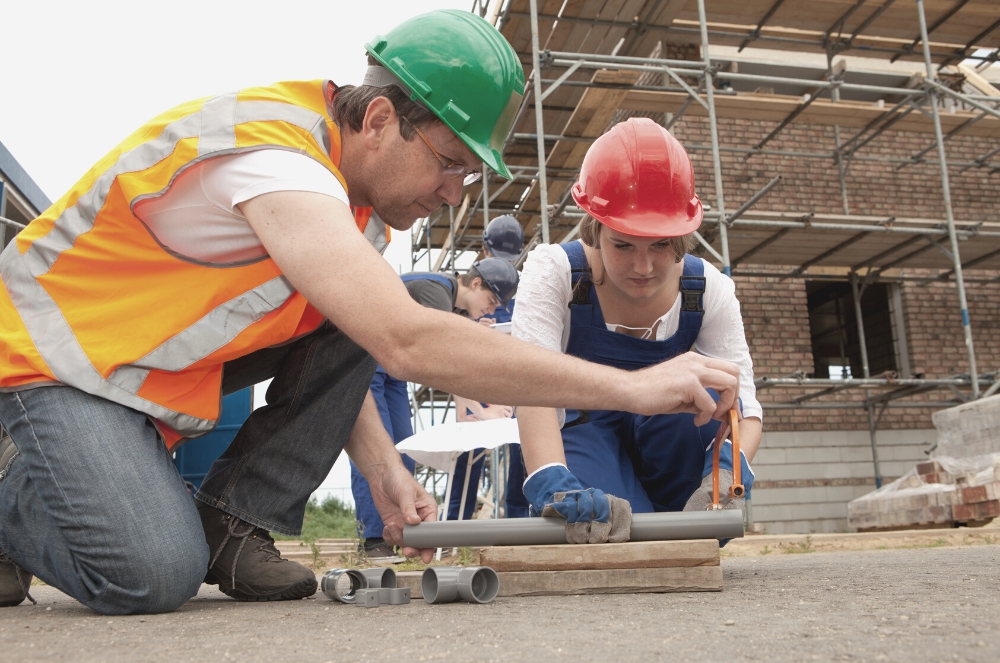
Importance of communication between plumbers and clients
Effective communication between plumbers and clients is essential for achieving successful plumbing projects. Good communication helps to ensure that clients understand the scope of the work, the costs involved, and the timeline for completion. It also helps to ensure that plumbers understand the specific needs and preferences of their clients. This can include the client’s budget, design preferences, and any specific requirements or concerns. Good communication also helps to prevent misunderstandings and miscommunications, which can lead to frustration, delays, and increased costs.
Clear and open communication can help to establish trust and confidence between plumbers and clients, which is essential for building long-term relationships. By maintaining clear and open lines of communication, plumbers can ensure that their clients are satisfied with their work and that their projects are completed on time and to a high standard.
Role of plumbers in disaster relief efforts
Plumbers play an important role in disaster relief efforts by providing essential services to communities that have been impacted by natural disasters such as hurricanes, earthquakes, and floods. In these emergencies, plumbing systems can be severely damaged or destroyed, which can cause serious health and safety risks. Plumbers are responsible for assessing the damage, repairing broken pipes, restoring water supplies, and ensuring that sewage systems are functioning properly. They also work to prevent further damage, such as water damage and mould growth, by installing temporary solutions such as water tanks and portable toilets.
The work of plumbers is critical in helping communities to recover from disasters and to restore normalcy to their lives as quickly and safely as possible. They play a key role in ensuring the health and safety of affected populations and in minimising the long-term impact of disasters on communities.
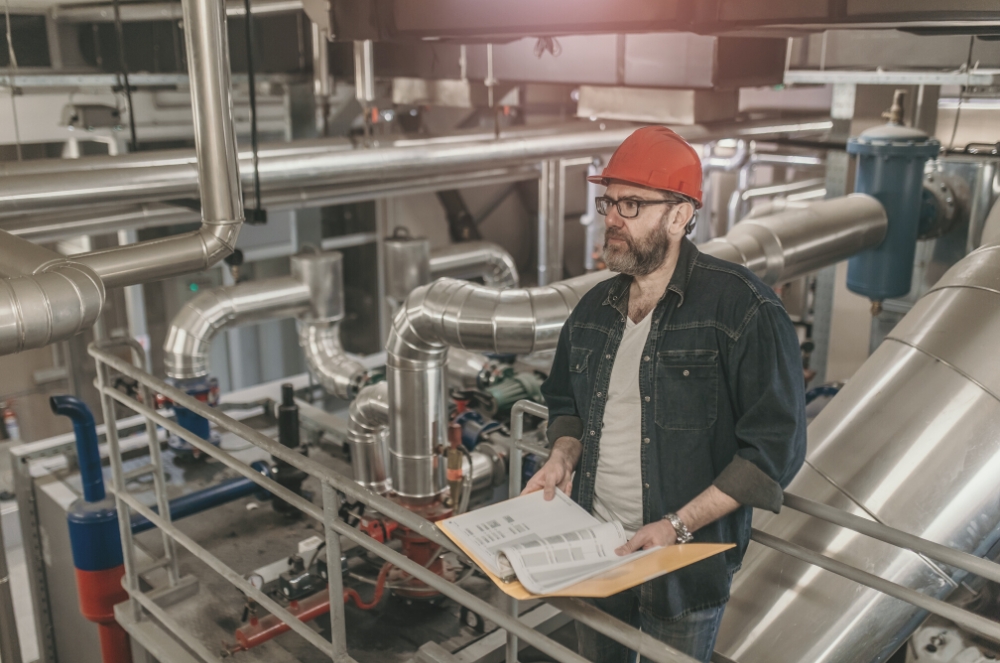
The future of plumbing and the job market for plumbers
The future of plumbing and the job market for plumbers looks promising, as the demand for skilled plumbers continues to grow. With advancements in technology and increasing concerns about energy efficiency and sustainability, the plumbing industry is constantly evolving and changing. Plumbers are now expected to have a broader range of skills, including knowledge of alternative energy systems, smart home technology, and environmental conservation.
Additionally, the increasing demand for plumbing services in residential, commercial, and industrial construction projects means that there will be a growing need for qualified plumbers in the future. Furthermore, the ageing infrastructure of many cities and communities means that there will be a need for ongoing repairs and upgrades, which will provide ongoing employment opportunities for plumbers. Overall, the future of plumbing and the job market for plumbers is bright, and there is a strong demand for skilled and dedicated professionals who are committed to the industry.
Use the Right Plumber for the Job
Are you tired of searching endlessly for a reliable plumber in Newcastle? Look no further! Newcastle Trades is here to connect you with the best plumbing professionals in the area. Our platform is designed to make finding the right plumber a stress-free and efficient process. By choosing Newcastle Trades, you gain access to a network of highly skilled and experienced plumbing experts who are ready to tackle any job – be it a minor leak or a major renovation. Don’t waste your precious time sifting through countless online ads and reviews. Instead, trust Newcastle Trades to do the heavy lifting for you. Visit our website today to submit a service request and let us help you find the perfect plumber to meet your needs. Remember, your peace of mind is just a click away!







